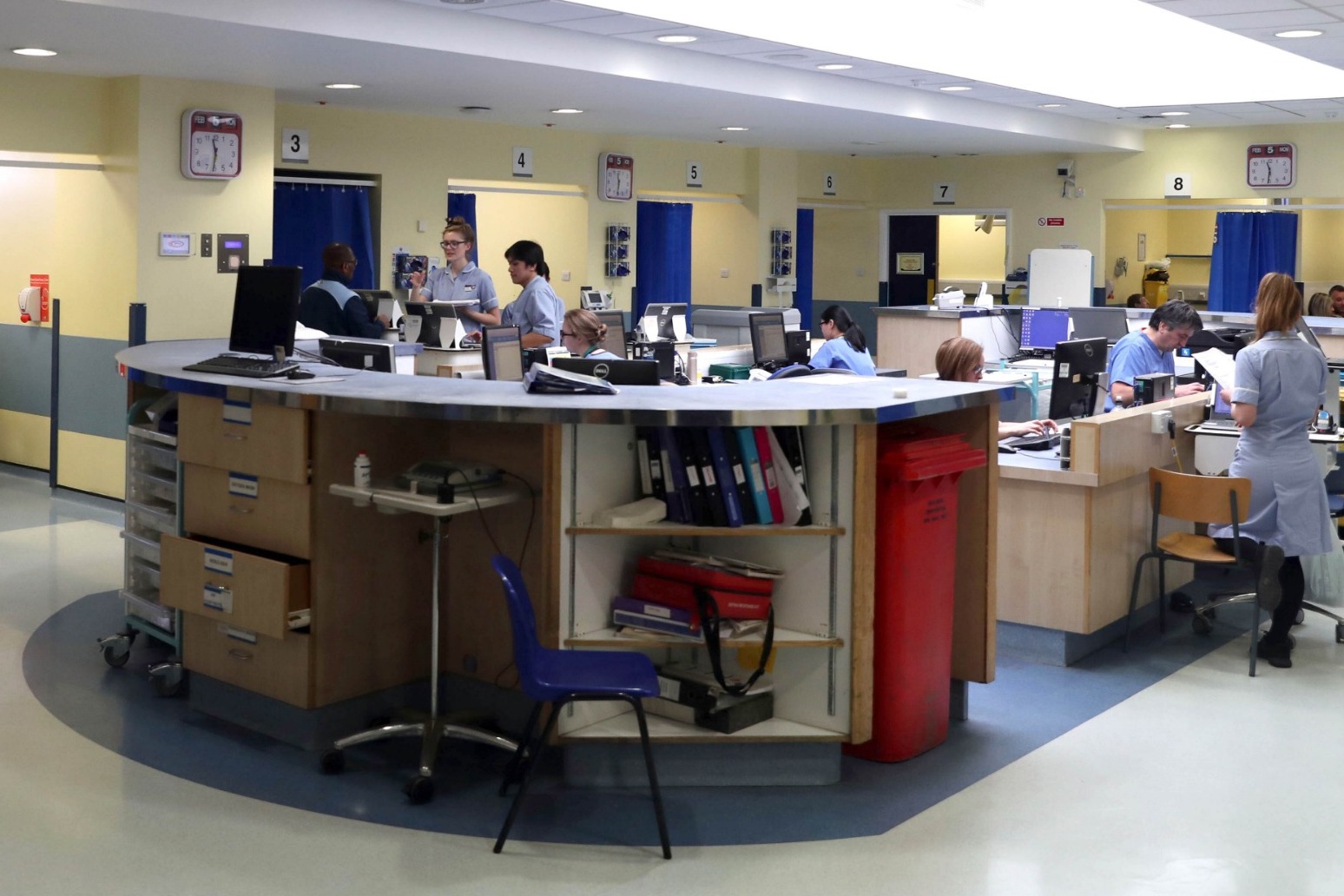
GMC warns of high risk of doctor burnout
The NHS backlog of care cannot be properly addressed with an “exhausted and depleted supply of clinicians”, the General Medical Council (GMC) has warned.
The UK doctors’ regulator said that the “risk of burnout is now the highest it has ever been” since it started tracking burnout risks in 2018.
It warned that the post-pandemic hospital waiting lists are threatening the health and wellbeing of doctors as well as their patients.
A major new survey of trainee medics found that almost two-thirds (63%) are at “moderate to high risk of burnout”.
Some 67,000 medics across the UK responded to the poll, including both trainee doctors and those who train them.
Two-thirds (66%) of trainees said they are ‘always’ or ‘often’ worn out at the end of their working day.
And 44% said they were regularly exhausted in the morning at the thought of another day of work.
It said that the risk of burnout has increased across every area of medical training, but the highest rate was seen in emergency medicine.
In 2021, 21% of training doctors working in emergency care were deemed to be at high risk of burnout, but this rose to 32% in 2022, according to the poll.
The GMC also sounded the alarm over burnout among doctors who are also trainers, with 52% of this group deemed to be at moderate or high risk of burnout.
The regulator warned: “what should have been a blip is in danger of becoming a trend”.
In the foreword of the report, GMC chief executive Charlie Massey said: “The risk of burnout is now the highest it has ever been since we began tracking it in 2018.
“Our analysis shows that 63% of trainees and 52% of doctors working as trainers are at a moderate or high risk of burnout. That risk has increased since 2021 across every specialty of trainees: what should have been a blip is in danger of becoming a trend.
“The health services cannot address treatment backlogs during the challenging times ahead with an exhausted and depleted supply of clinicians.”
Mr Massey continued in a statement: “These results show the extent to which our health services are struggling to recover from the impact of the pandemic, and that NHS backlogs are not just a risk to patients, but also to the health and wellbeing of doctors.
“The danger now is that increased workloads, and the stress and burnout risk that go with them, may become permanent.
“Support for trainees and trainers must be at the heart of future workforce policy decisions, or we risk creating a vicious circle that, ultimately, will adversely affect patients.”
The GMC also called for more to be done to tackle inequality in the health service after 12% of trainees and 18% of trainers do not think their employer provides a “supportive environment for everyone regardless of background, beliefs, or identity”.
But the survey found that on the whole trainees rate their training highly and trainers were positive about their work.
A Welsh Government spokesperson said: “Frontline staff across our NHS and social care services have been incredible throughout the pandemic attending to the physical and mental health of those in need. We must ensure their own mental health and wellbeing is fully supported and have provided £4.5 million to fund the Canopi service, which provides mental health support to the NHS and social care workforce.
“Working with health boards, we have set ambitious but realistic targets to tackle the pandemic backlog for planned care, backed by significant extra long-term funding. In addition a dedicated recovery director and team will support each health board to develop and implement their local proposals in line with the national strategy.”
A Scottish Government spokesperson said: “The Scottish Government is committed to looking after the wellbeing of our NHS staff and in 2021/22 £12 million was made available to support the mental health and wellbeing of the workforce.
“NHS Scotland staffing is at a record high level and we are increasing medical undergraduate places and trainee doctor posts year on year. Since 2014, 719 additional training posts have been funded by the Scottish Government.
“We’re determined to go further and we are working with health boards fill posts and create new roles.”
A spokesperson for the Department of Health in Northern Ireland acknowledged the pressures staff were working under which have been “attenuated by the unique challenges presented by the pandemic”.
The spokesperson added: “We have recently published a second three-year action plan to… ensure that a transformed health and social system has the right numbers of appropriately trained staff with the right skills mix.
“We want to create the conditions so that health and social care becomes an employer, and a trainer, of choice.
“As part of this agenda, a Health and Wellbeing Framework is being developed to support improvement in staff health. The Northern Ireland Medical and Dental Training Agency is also working with Doctors in Training and employers on practical measures to enhance the working experience of the trainee doctor workforce.”
A spokesperson for the Department of Health and Social Care, said: “We are grateful to all the healthcare staff for their tireless work supporting patients, and their health and wellbeing while doing so is a top priority.
“Frontline staff can receive rapid access to mental health services through 40 staff mental health and wellbeing hubs, and we are seeking to ease pressures by tackling the Covid backlogs.
“Since January, we’ve seen the number of people waiting two years for treatment fall by 80%, and we’ve also rolled out over 90 community diagnostic centres which have delivered over one million additional scans.”
Published: by Radio NewsHub